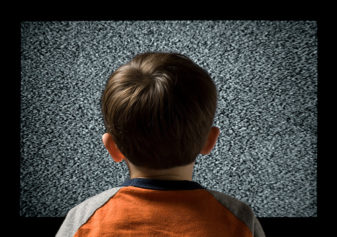When my daughter, Anna, got home from school the other day, I told her, “We’ve got to get you new shoes. Take a quick break, and then let’s jump in the car.” In response, my usually mellow and mild-mannered 12-year-old threw down her backpack and snapped, “Oh. My. God. I JUST got home and you’re not EVEN gonna let me rest for five minutes? FINE! LET’S GO! ”
“We don’t have to leave this instant,” I said. “Let me get you some iced tea.”
“NO! I have to get in the car. COME ON!”
“Hey, calm down. You can rest a minute. . .”
“YOU rest! I’ve got to go somewhere NOW!” And she slammed out the door.
“What’s wrong with her?” my 8-year-old asked.
“I think the hormones have arrived, ” I said.
When your tween starts talking back, or yelling at you, or rolling her eyes every time you start to open your mouth, you’re bound to feel shock, then maybe anger, followed closely by hurt.
“In the beginning you try to chalk it up to a reason, just as you did when she was younger: Is she hungry? Overtired? ” says Christina Bess, the mom of a nine and a 12-year-old in Maplewood, NJ. “And then you realize the reason is, she’s a tween.”
“The first time I heard her say something under her breath, I was surprised,” says Gamin Summers of her “extra-sweet” nine-year-old daughter. “She’ll mutter, ‘You clean your room’ at me. I know it’s normal, but when you put everything into raising them right and they come back at you with disrespect, it stings, and it makes you second-guess your parenting skills,” adds the mom of five, including two tweens, from Flagstaff, AZ.
This may be especially true if it seems that your kid has gone from happy to snappy before her time. After all, this is the kind of behavior you expect from 13- and 14-year-olds — not kids who haven’t even hit the double digits. But the onset of sassy behavior is not your fault. With adolescence looming, kids naturally feel compelled to start going their own way.
“They’re not intentionally being disobedient,” says Mary-Ann Lowry, a parenting coach and educator from Thousand Oaks, CA. “They’re on a path toward ‘individuation,’ when they really try to figure out who they are separate from you.”
And then, of course, there are myriad outside influences. Thanks to cell phones and texting, for example, tweens are developing closer bonds with their peer groups and, as a result, pushing away from their parents at earlier ages. Plus, many television shows and even books aimed at this age group often portray adults as clueless fools, as any parent who’s been on the receiving end of “Duh!” can attest.
Read More: parenting.com

